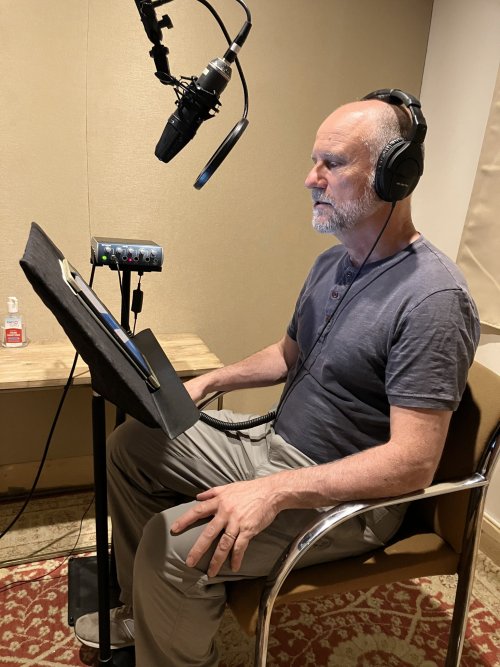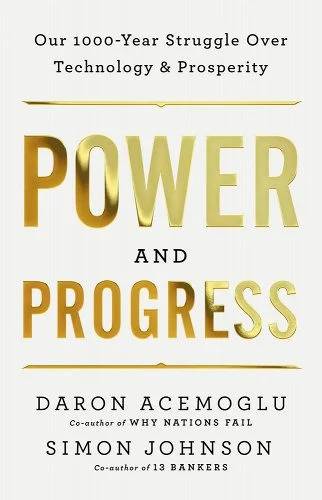I am unabashedly a technology optimist. For me, however, that means making choices for how we will get the best out of technology for the good of humanity, while limiting its negative effects. With technology becoming ever more powerful there is a huge premium on getting this right as the downsides now include existential risk.
Let me state upfront that I am super excited about progress in AI and what it can eventually do for humanity if we get this right. We could be building the capacity to turn Earth into a kind of garden of Eden, where we get out of the current low energy trap and live in a World After Capital.
At the same time there are serious ways of getting this wrong, which led me to write a few posts about AI risks earlier this year. Since then the AI safety debate has become more heated with a fair bit of low-rung tribalism thrown into the mix. To get a glimpse of this one merely needs to look at the wide range of reactions to the White House Executive Order on Safe, Secure and Trustworthy Development and Use of Artificial Intelligence. This post is my attempt to point out what I consider to be serious flaws in the thinking of two major camps on AI safety and to mention an unpopular way forward.
First, let’s talk about the “AI safety is for wimps” camp, which comes in two forms. One is the happy-go-lucky view represented by Marc Andreessen’s “Techno-Optimist Manifesto” and also his preceding Tweet thread. This view dismisses critics who dare to ask social or safety questions as luddites and shills.
So what’s the problem with this view? Dismissing AI risks doesn’t actually make them go away. And it is extremely clear that at this moment in time we are not really set up to deal with the problems. On the structural risk side we are already at super extended income and wealth inequality. And the recent AI advances have already been shown to further accelerate this discrepancy.
On the existential risk side, there is recent work by Kevin Esvelt et al. showing how LLMs can broaden access to pandemic agents. Jeffrey Ladish et. al. demonstrating how cheap it is to remove safety training from an open source model with published weights. This type of research clearly points out that as open source models become rapidly more powerful they can be leveraged for very bad things and that it continues to be super easy to strip away the safeguards that people claim can be built into open source models.
This is a real problem. And people like myself, who have strongly favored permissionless innovation, would do well to acknowledge it and figure out how to deal with it. I have a proposal for how to do that below.
But there is one intellectually consistent way to continue full steam ahead that is worth mentioning. Marc Andreessen cites Nick Land as an inspiration for his views. Land in Meltdown wrote the memorable line “Nothing human makes it out of the near-future”. Embracing AI as a path to a post-human future is the view embraced by the e/acc movement. Here AI risks aren’t so much dismissed as simply accepted as the cost of progress. My misgiving with this view is that I love humanity and believe we should do our utmost to preserve it (my next book which I have started to work on will have a lot more to say about this).
Second, let’s consider the “We need AI safety regulation now” camp, which again has two subtypes. One is “let regulated companies carry on” and the other is “stop everything now.” Again both of these have deep problems.
The idea that we can simply let companies carry on with some relatively mild regulation suffers from three major deficiencies. First, this has the risk of leading us down the path toward highly concentrated market power and we have seen the problems of this in tech again and again (it has been a long standing topic on my blog). For AI market power will be particularly pernicious because this technology will eventually power everything around us and so handing control to a few corporations is a bad idea. Second, the incentives of for-profit companies aren’t easily aligned with safety (and yes, I include OpenAI here even though it has in theory capped investor returns but also keeps raising money at ever higher valuations, so what’s the point?).
But there is an even deeper third deficiency of this approach and it is best illustrated by the second subtype which essentially wants to stop all progress. At its most extreme this is a Ted Kaczynsci anti technology vision. The problem with this of course is that it requires equipping governments with extraordinary power to prevent open source / broadly accessible technology from being developed. And this is an incredible unacknowledged implication of much of the current pro-regulation camp.
Let me just give a couple of examples. It has long been argued that code is speech and hence protected by first amendment rights. We can of course go back and revisit what protections should be applicable to “code as speech,” but the proponents of the “let regulated companies go ahead with closed source AI” don’t seem to acknowledge that they are effectively asking governments to suppress what can be published as open source (otherwise, why bother at all?). Over time government would have to regulate technology development ever harder to sustain this type of regulated approach. Faster chips? Government says who can buy them. New algorithms? Government says who can access them. And so on. Sure, we have done this in some areas before, such as nuclear bomb research, but these were narrow fields, whereas AI is a general purpose technology that affects all of computation.
So this is the conundrum. Dismissing AI safety (Scylla) only makes sense if you go full on post humanist because the risks are real. Calling for AI safety through oversight (Charybdis) doesn’t acknowledge that way too much government power is required to sustain this approach.
Is there an alternative option? Yes but it is highly unpopular and also hard to get to from here. In fact I believe we can only get there if we make lots of other changes, which together could take us from the Industrial Age to what I call the Knowledge Age. For more on that you can read my book The World After Capital.
For several years now I have argued that technological progress and privacy are incompatible. The reason for this is entropy, which means that our ability to destroy will always grow faster than our ability to (re)build. I gave a talk about it at the Stacks conference in Berlin in 2018 (funny side note: I spoke right after Edward Snowden gave a full throated argument for privacy) and you can read a fuller version of the argument in my book.
The only solution other than draconian government is to embrace a post privacy world. A world in which it can easily be discovered that you are building a super dangerous bio weapon in your basement before you have succeeded in releasing it. In this kind of world we can have technological progress but also safeguard humanity – in part by using aligned super intelligences to detect what is happening. And yes, I believe it is possible to create versions of AGI that have deep inner alignment with humanity that cannot easily be removed. Extremely hard yes, but possible (more on this in upcoming posts on an initiative in this direction).
Now you might argue that a post privacy world also requires extraordinary state power but that’s not really the case. I grew up in a small community where if you didn’t come out of your house for a day, the neighbors would check in to make sure you were OK. Observability does not require state power per se. Much of this can happen simply if more information is default public. And so regulation ought to aim at increased disclosure.
We are of course a long way away from a world where most information about us could be default public. It will require massive changes from where we are today to better protect people from the consequences of disclosure. And those changes would eventually have to happen everywhere that people can freely have access to powerful technology (with other places opting for draconian government control instead).
Given that the transition which I propose is hard and will take time, what do I believe we should do in the short run? I believe that a great starting point would be disclosure requirements covering training inputs, cost of training runs, and powered by (i.e. if you launch say a therapy service that uses AI you need to disclose which models). That along with mandatory API access could start to put some checks on market power. As for open source models I believe a temporary voluntary moratorium on massively larger more capable models is vastly preferable to any government ban. This has a chance of success because there are relatively few organizations in the world that have the resources to train the next generation of potentially open source models.
Most of all though we need to have a more intellectually honest conversation about risks and how to mitigate them without introducing even bigger problems. We cannot keep suggesting that these are simple questions and that people must pick a side and get on with it.



